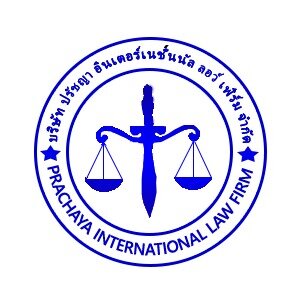Best Employment Benefits & Executive Compensation Lawyers in Thailand
Share your needs with us, get contacted by law firms.
Free. Takes 2 min.
Or refine your search by selecting a city:
List of the best lawyers in Thailand
Legal guides written by Smart Legal Solutions:
- Main Legal Measures to Protect Foreign Investment in Thailand
- The importance of the geographical indications for the Thai economy
About Employment Benefits & Executive Compensation Law in Thailand
Employment Benefits & Executive Compensation law in Thailand encompasses regulations and legal standards governing the compensation packages and benefits that employers offer to employees, particularly focusing on senior executives and other high-level positions. These laws ensure fairness, transparency, and compliance with Thai labor standards while promoting a competitive and equitable work environment. This field of law covers a wide range of employment-related financial aspects, including basic wages, bonuses, stock options, and other executive incentives. Understanding these laws is crucial for both employers and employees in navigating the complex landscape of workplace compensation.
Why You May Need a Lawyer
People often require legal assistance in the field of Employment Benefits & Executive Compensation for several reasons:
- Navigating complex employment contracts and packages, particularly for executives.
- Ensuring compliance with Thai labor laws and regulations.
- Resolving disputes related to compensation, bonuses, or benefits.
- Drafting or reviewing contractual agreements to ensure fairness and legality.
- Understanding tax implications related to compensation and benefits.
- Advising on restructuring compensation plans to maintain competitiveness while complying with legal standards.
Local Laws Overview
Thailand has a range of labor laws that impact Employment Benefits & Executive Compensation. Key aspects include:
- Labor Protection Act: Regulates minimum wages, working hours, overtime payments, annual leave, and severance pay, providing a legal framework for employment standards.
- Social Security Act: Requires employer and employee contributions to the social security fund, which covers benefits such as healthcare and unemployment compensation.
- Revenue Code: Outlines the tax obligations related to personal income, including income derived from employment and executive compensation packages.
- Employment Termination and Severance: Specific laws govern the conditions under which employment can be legally terminated and the severance entitlements owed to employees.
- Non-Compete and Confidentiality Clauses: Legal provisions that may be included in employment contracts to protect business interests while aligning with Thai labor laws.
Frequently Asked Questions
What constitutes an executive compensation package in Thailand?
Executive compensation packages in Thailand typically include a base salary, bonuses, stock options, and other long-term incentives. They may also offer additional benefits such as health insurance, retirement plans, and company cars.
Are bonuses and incentives taxable in Thailand?
Yes, bonuses and other incentives are considered income and are subject to personal income tax in Thailand. The employee is responsible for declaring this income and paying the necessary taxes.
Can an employer unilaterally change an employee's benefits or compensation?
Employers cannot unilaterally change agreed-upon benefits or compensation without the consent of the employee, as this would breach the employment contract and potentially violate Thai labor laws.
What is the legal process for resolving compensation disputes?
Compensation disputes can be addressed through negotiation, mediation, or, if necessary, litigation in labor courts, where both parties present their cases for a legal determination.
How is severance pay calculated in Thailand?
Severance pay is typically calculated based on the employee’s tenure, with specific legal requirements for minimum amounts due, depending on the length of service.
What should be included in an executive employment contract?
An executive employment contract should clearly outline all elements of compensation, job responsibilities, confidentiality clauses, expiration terms, and conditions for termination.
What should an employee do if they feel they are not receiving the correct benefits?
Employees should first address their concerns directly with their employer. If unresolved, they can seek legal counsel or file a complaint with the Department of Labor Protection and Welfare.
Is social security mandatory for all employees in Thailand?
Yes, the Social Security Act mandates contributions from both employees and employers, covering all registered employees for various social benefits.
Are there legal restrictions on non-compete clauses in Thailand?
Non-compete clauses are permissible but must be reasonable in terms of time, geography, and scope to be enforceable in Thailand.
What resources are available for understanding Thai labor laws?
Employees and employers can access information through the Ministry of Labour, legal publications from law firms, and services from the Board of Investment.
Additional Resources
To further understand Employment Benefits & Executive Compensation and related laws in Thailand, the following resources are recommended:
- Ministry of Labour: Provides updates on labor law changes, guidelines, and publications relevant to employment.
- Thai Labour Protection Department: Offers resources for understanding employees’ rights and employer obligations.
- Thailand Revenue Department: Provides information on taxation related to employment income.
- Legal Consultation Firms: Seek advice from firms specializing in labor law to get personalized guidance and interpretation of legal texts.
- Board of Investment of Thailand (BOI): Offers comprehensive insights into executive compensation linked to foreign investments and multinational corporations in Thailand.
Next Steps
If you require legal assistance in Employment Benefits & Executive Compensation in Thailand, consider taking the following steps:
- Identify the specific legal issue or question you need help with to better assess the type of legal counsel required.
- Search for experienced legal professionals or law firms that specialize in employment law, particularly in benefits and executive compensation.
- Schedule a consultation to discuss your situation comprehensively and receive tailored legal advice or representation.
- Gather all relevant documents and background information before your consultation to provide a clear picture to your legal advisor.
- Stay informed about updates in Thai employment law to ensure ongoing compliance and to safeguard your rights and obligations effectively.
Lawzana helps you find the best lawyers and law firms in Thailand through a curated and pre-screened list of qualified legal professionals. Our platform offers rankings and detailed profiles of attorneys and law firms, allowing you to compare based on practice areas, including Employment Benefits & Executive Compensation, experience, and client feedback.
Each profile includes a description of the firm's areas of practice, client reviews, team members and partners, year of establishment, spoken languages, office locations, contact information, social media presence, and any published articles or resources. Most firms on our platform speak English and are experienced in both local and international legal matters.
Get a quote from top-rated law firms in Thailand — quickly, securely, and without unnecessary hassle.
Disclaimer:
The information provided on this page is for general informational purposes only and does not constitute legal advice. While we strive to ensure the accuracy and relevance of the content, legal information may change over time, and interpretations of the law can vary. You should always consult with a qualified legal professional for advice specific to your situation.
We disclaim all liability for actions taken or not taken based on the content of this page. If you believe any information is incorrect or outdated, please contact us, and we will review and update it where appropriate.
Browse employment benefits & executive compensation law firms by city in Thailand
Refine your search by selecting a city.
















